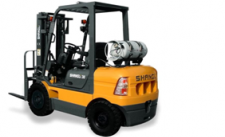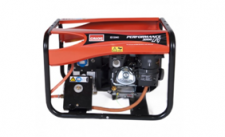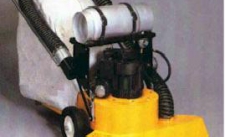Textile Industry
The textile industry is primarily concerned with the production of yarn, and cloth and the subsequent design or manufacture of clothing and their distribution.
Did you know that LPG plays a significant role in the production of the fabrics that we wear every day? The four main steps in the production of textile fabrics are:
- Fabric Preparation
- Spinning
- Weaving
- Finishing
These require a number of energy-consuming processes for which LPG has been found to be a suitable fuel. These processes are: Bath heating (for cleaning, bleaching and dyeing), Drying, print drying, thread singeing (burning off projected yarn for a better fabric finish), calendering (another finishing process), dyeing, polymerization as well as Ironing. Steam is also generated using LPG fired boilers.
LPG has multiple advantages in that it is clean and flexible, easy to maintain and produces a high thermal yield.
Applications
Forklifts

Power/Electricity Generators

Industrial Vacuum Cleaner
